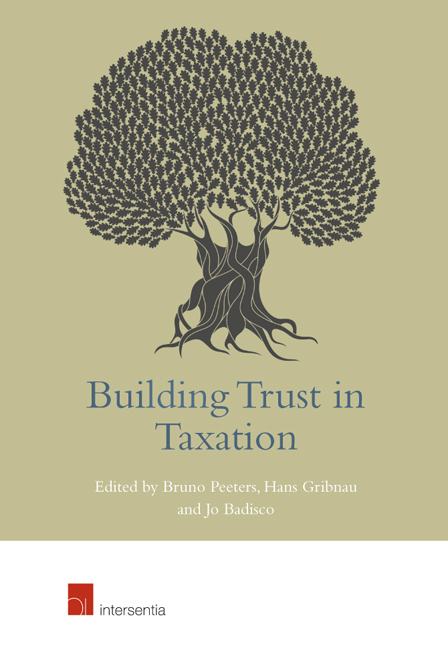Book contents
- Frontmatter
- Preface
- Contents
- List of Authors
- Introduction
- PART I TAXATION, STATE AND SOCIETY: RECIPROCITY AND THE LIMITS OF THE POWER TO TAX
- PART II Trust and morality: tax governance in need of transparency
- PART III International taxation: in search of democratic legitimacy
- Improving Democratic International Tax Governance: On the Power of Citizens, Transparency and Independent Watchdogs
- International Tax Justice Between Machiavelli and Habermas
- International Taxation without International Representation? Legality and Legitimacy in Global Tax Governance
- Tax Sovereignty and the Globalised Process of Law-Making: The Proposal of the UN Code of Conduct on Cooperation in Combating International Tax Evasion
- PART IV Behavioural aspects of taxation and trust
International Tax Justice Between Machiavelli and Habermas
from PART III - International taxation: in search of democratic legitimacy
Published online by Cambridge University Press: 21 September 2018
- Frontmatter
- Preface
- Contents
- List of Authors
- Introduction
- PART I TAXATION, STATE AND SOCIETY: RECIPROCITY AND THE LIMITS OF THE POWER TO TAX
- PART II Trust and morality: tax governance in need of transparency
- PART III International taxation: in search of democratic legitimacy
- Improving Democratic International Tax Governance: On the Power of Citizens, Transparency and Independent Watchdogs
- International Tax Justice Between Machiavelli and Habermas
- International Taxation without International Representation? Legality and Legitimacy in Global Tax Governance
- Tax Sovereignty and the Globalised Process of Law-Making: The Proposal of the UN Code of Conduct on Cooperation in Combating International Tax Evasion
- PART IV Behavioural aspects of taxation and trust
Summary
ABSTRACT
The main research question of this chapter is to investigate how the concept of international tax justice is determined. To what extent is it a democratic process based on a true dialogue between all stakeholders, meant to create a durable and legitimate system of international tax justice? The hypothesis for this research is that the present debate on international tax justice is polluted by power play and deception. In the end, this will lead to the reduced legitimacy of international taxation and to more injustice. Only democratic reforms based on a true dialogue between all stakeholders will lead to lasting solutions. This means that we should have more ‘Habermas’ and less ‘Machiavelli’. Therefore, a true dialogue with national parliaments and citizens will be necessary. This does not mean that in the future a (moderate) Machiavellian approach will not be acceptable anymore. What should be prevented, though, is that Machiavellian behaviour becomes dominant and will obstruct a true democratic decision-making process.
INTRODUCTION, RESEARCH QUESTION AND HYPOTHESIS
If Klaus Vogel were still with us, he would certainly be very much interested and engaged in the ongoing debate on international tax justice. Personally, I welcome this debate. In the past, international tax law was considered to be a predominantly technical topic, an issue that would be better left to experts. The present debate brings international tax law into the public arena. Like the national tax law systems, the international tax law system also affects civil society. This is especially true in a globalised world in which nations are connected with each other, the influence of supranational institutions is increasing, and in which citizens, capital, services and goods frequently cross borders. The choices in the field of international tax law have to be made, explained and justified by responsible politicians and policy-makers. But before these decisions are taken, many of the stakeholders in the international tax arena will do their best to influence and convince these politicians and policy-makers. Important roles in this process are played nowadays by NGOs, like the Tax Justice Network, Christian Aid and Oxfam International.
- Type
- Chapter
- Information
- Building Trust in Taxation , pp. 235 - 266Publisher: IntersentiaPrint publication year: 2017



